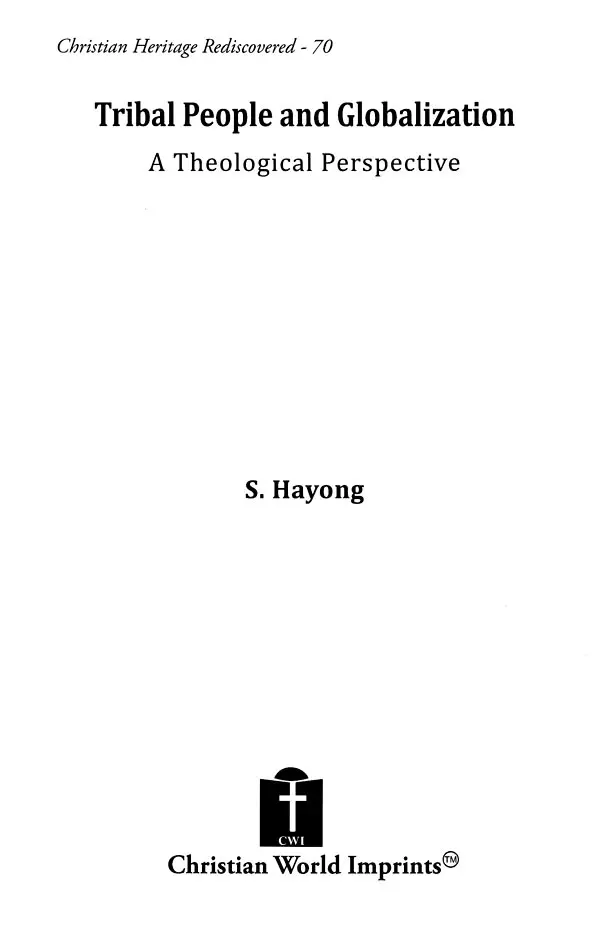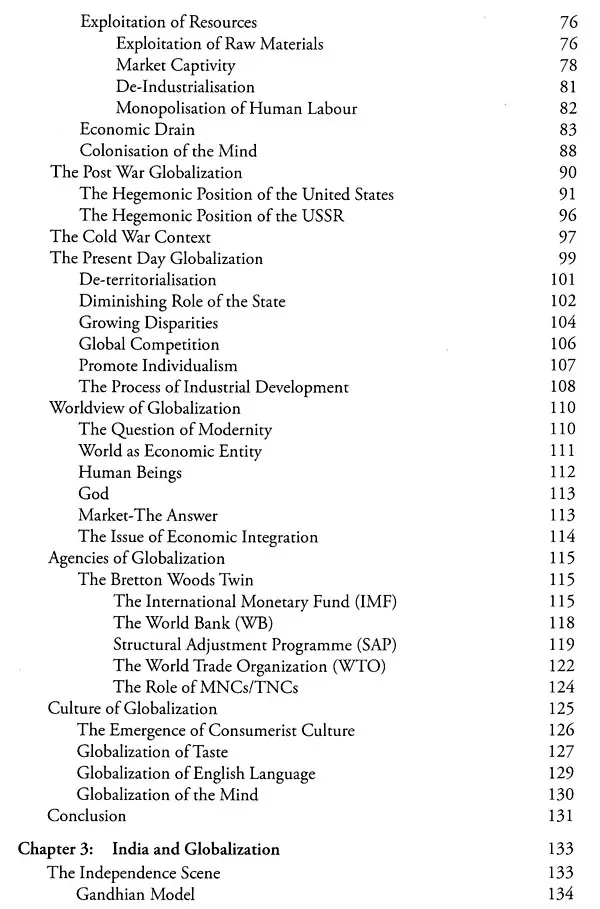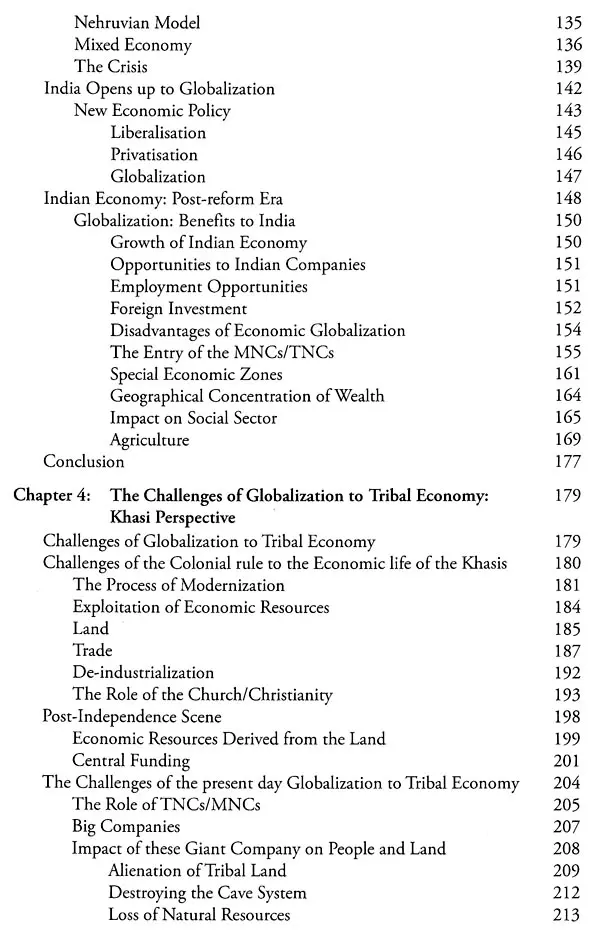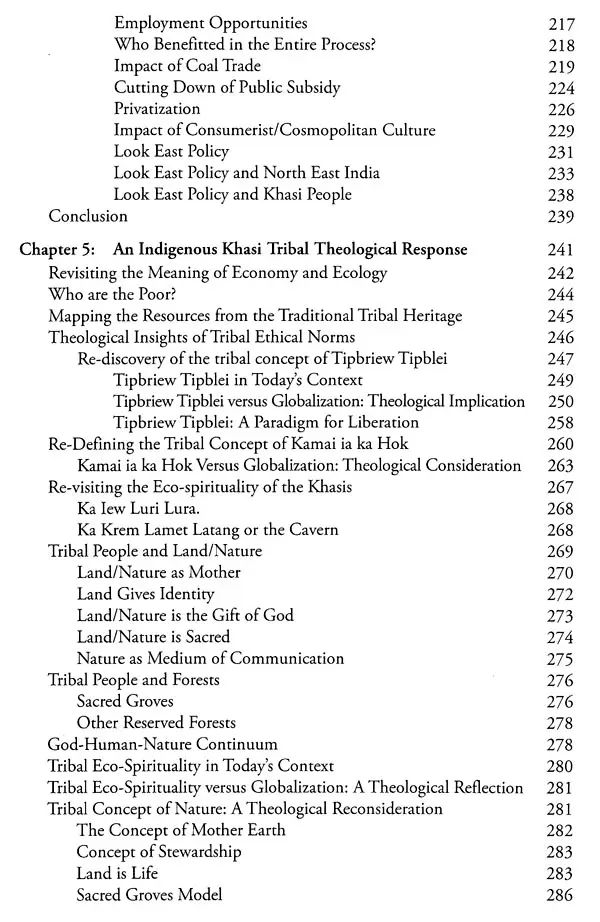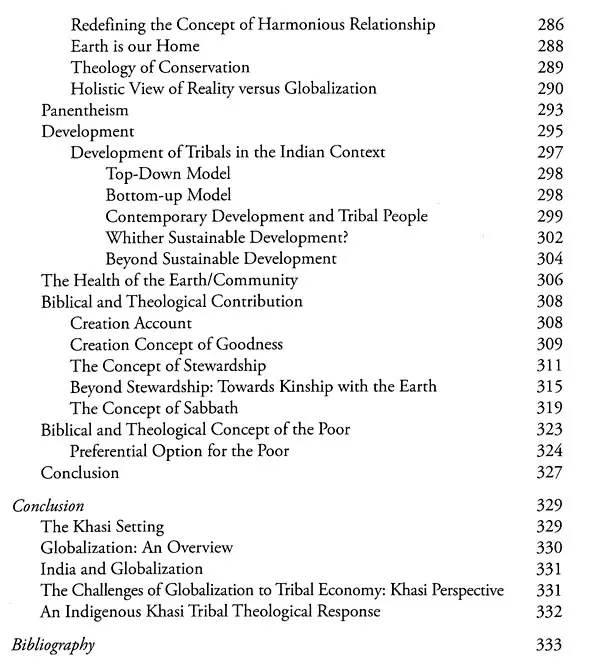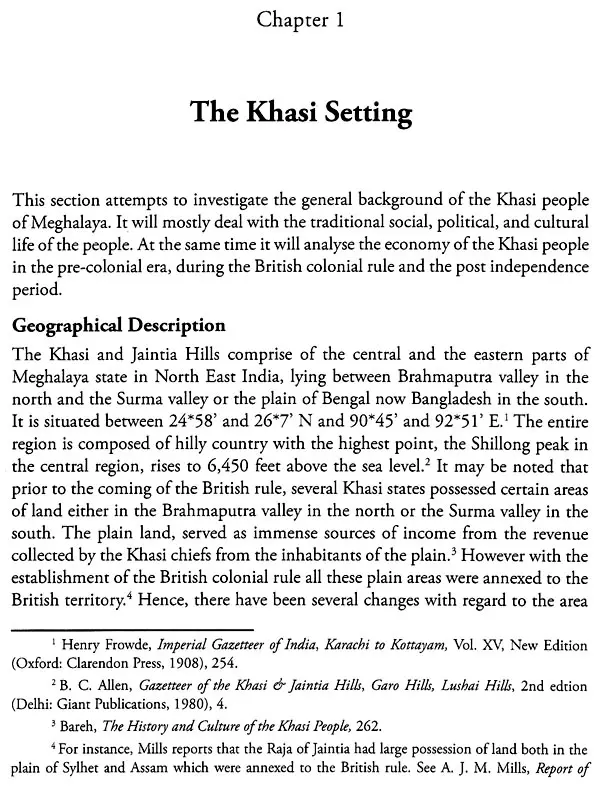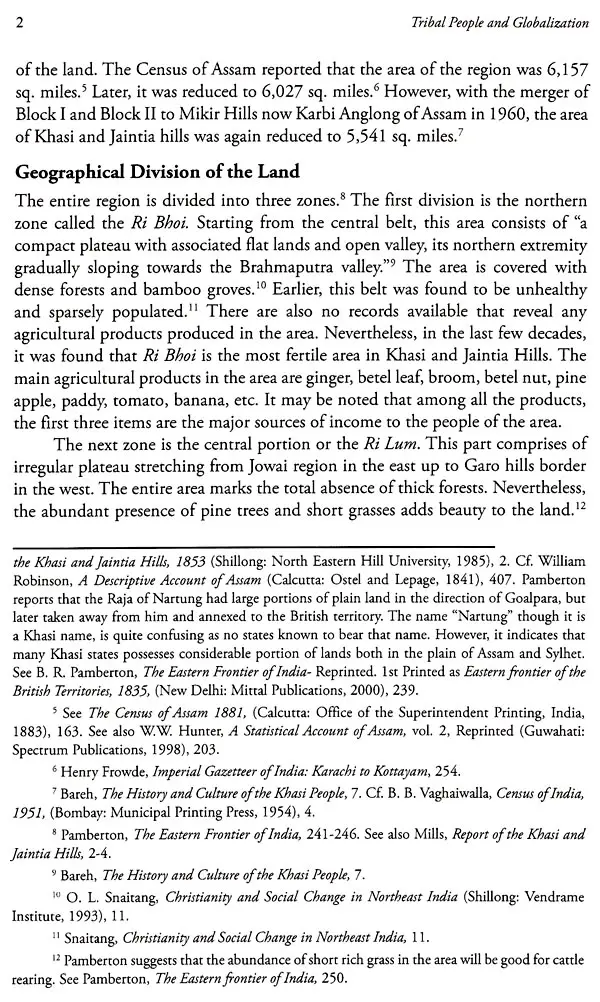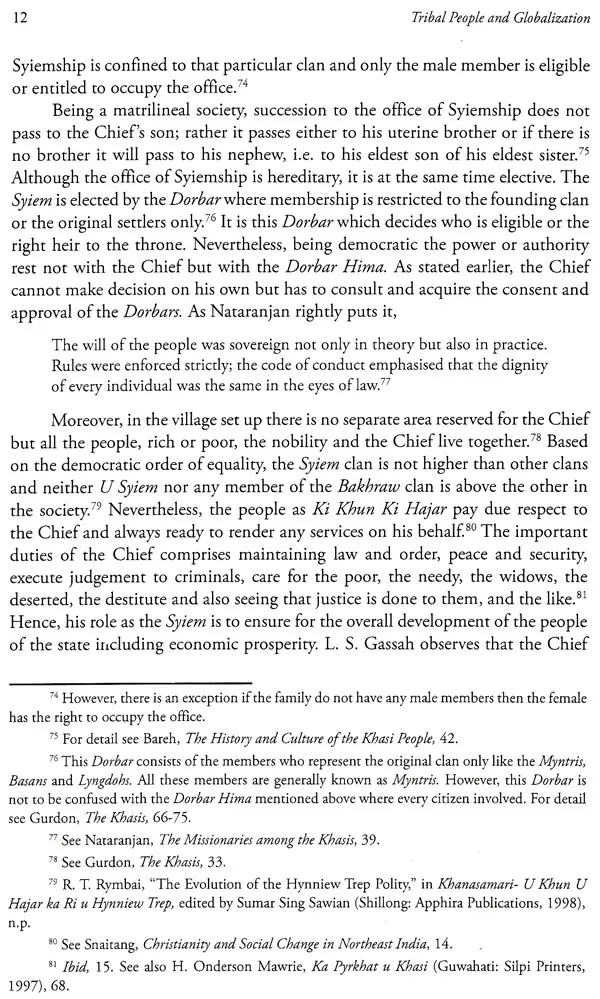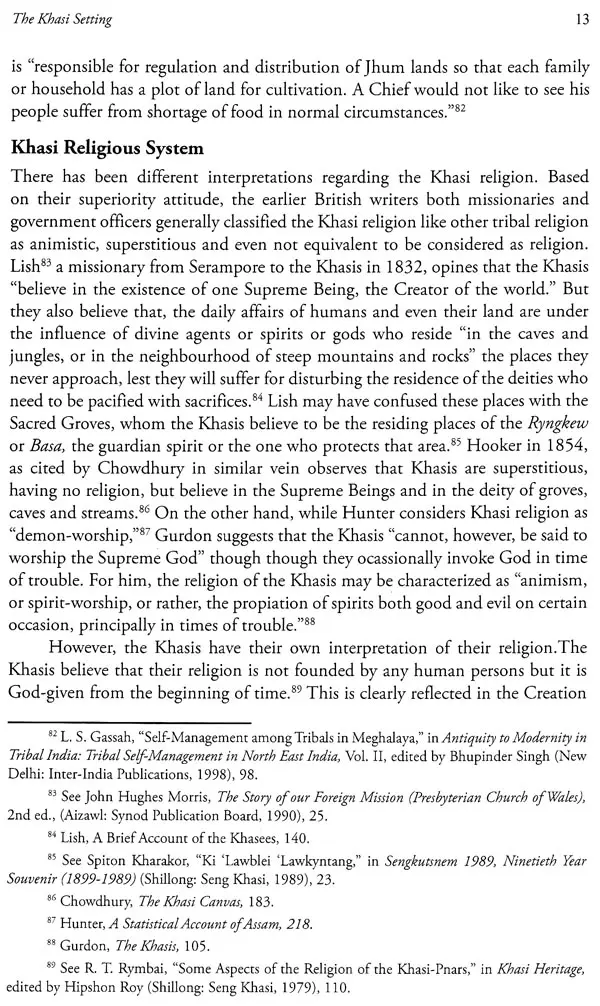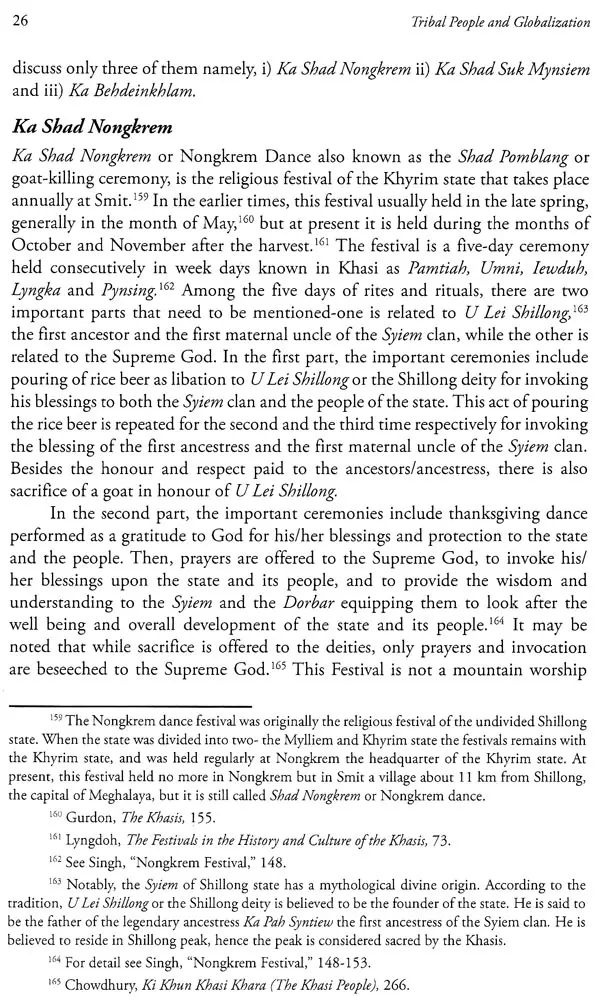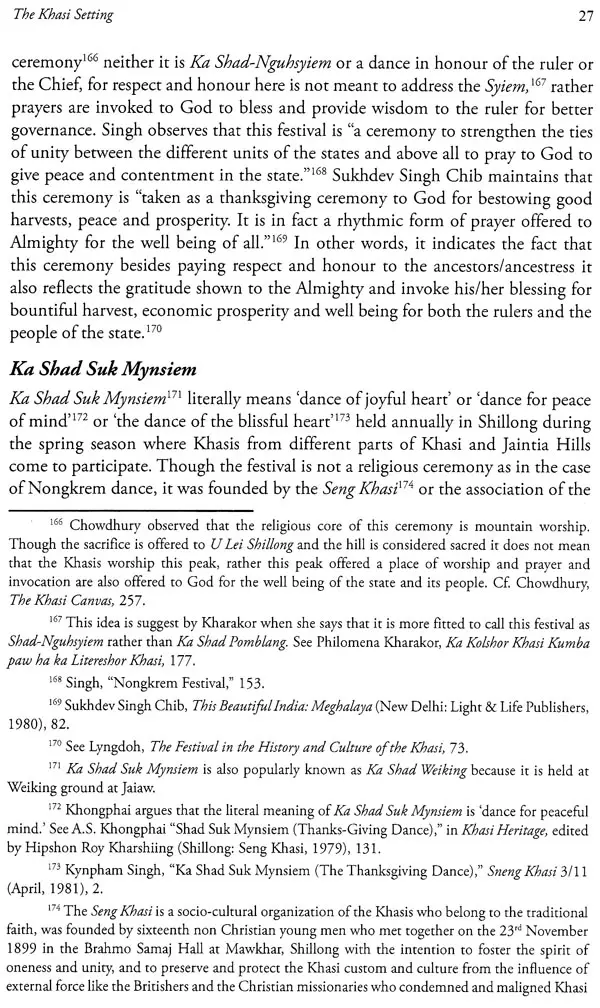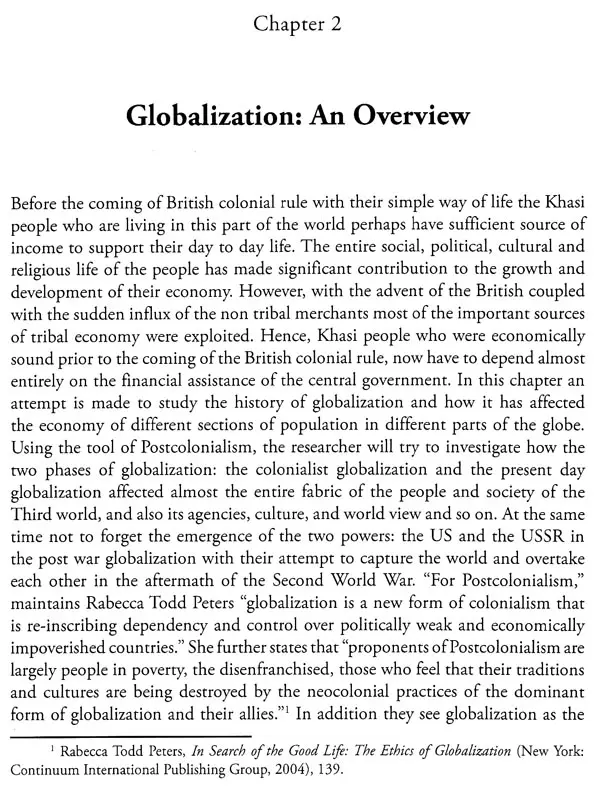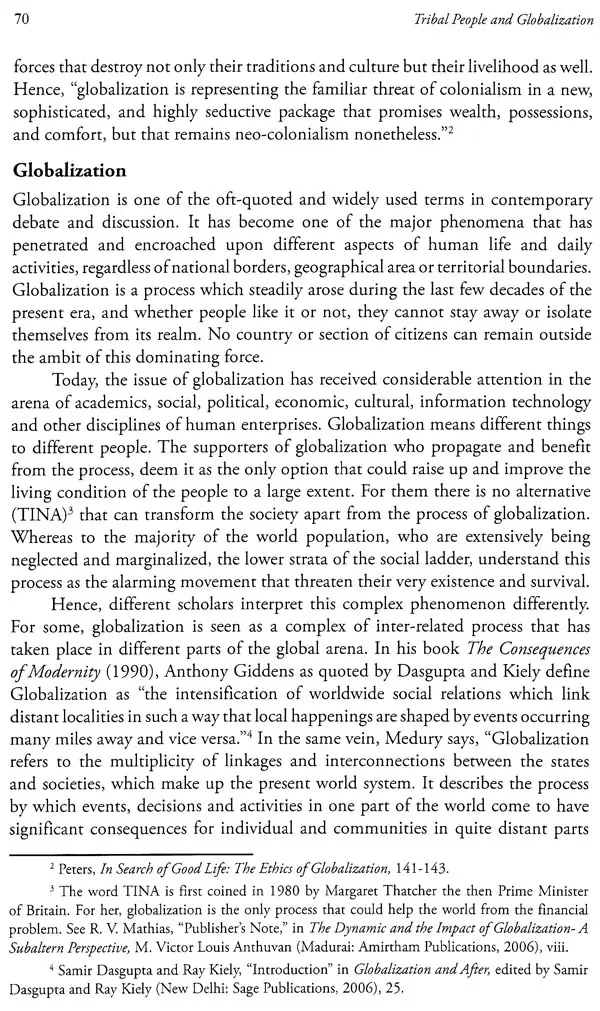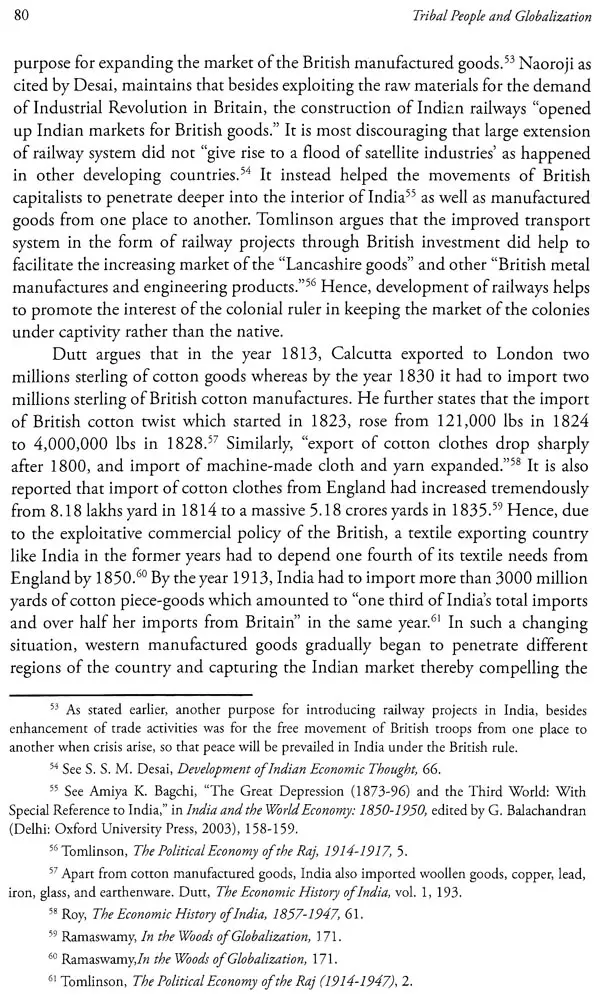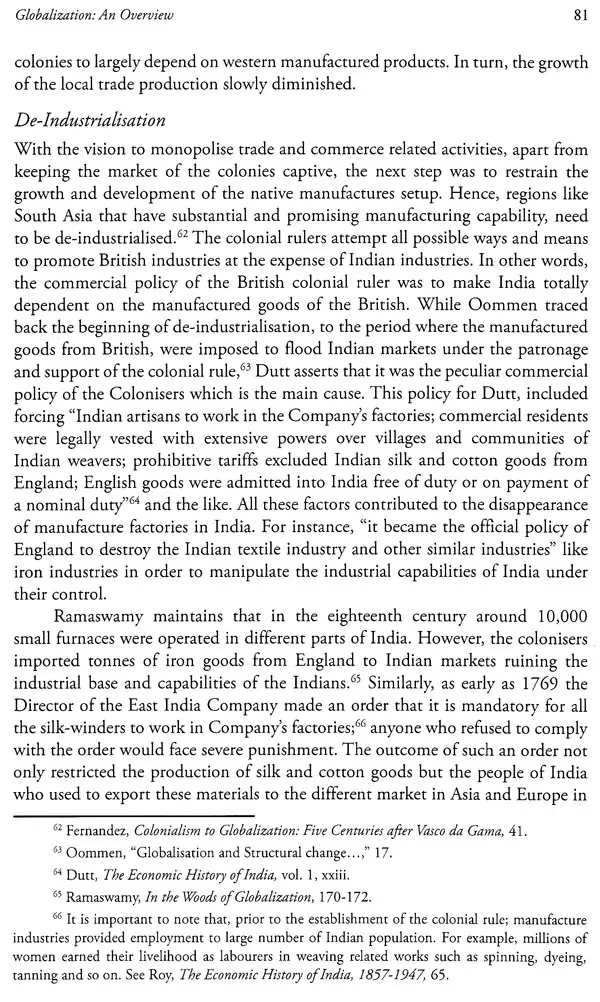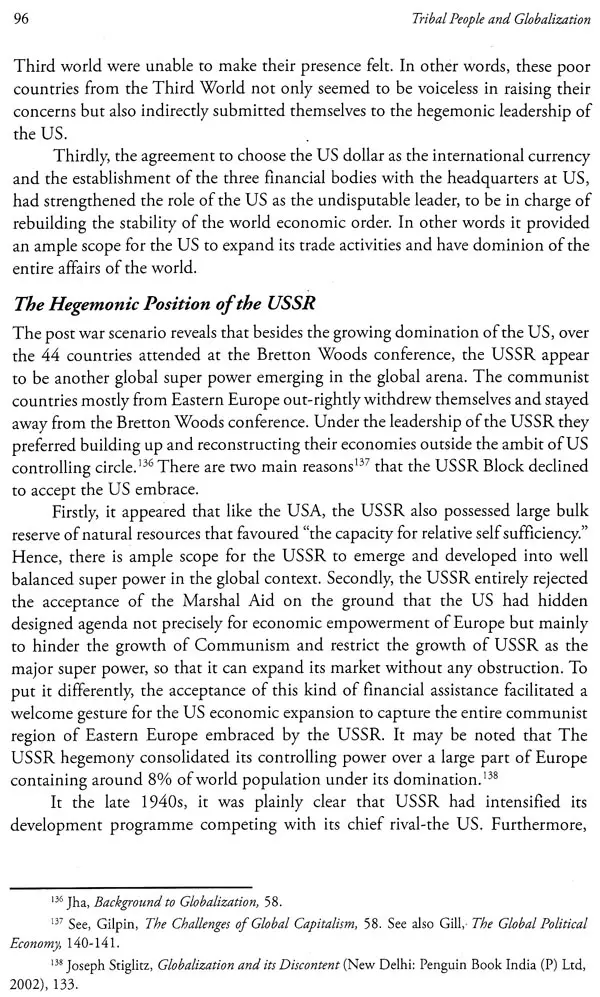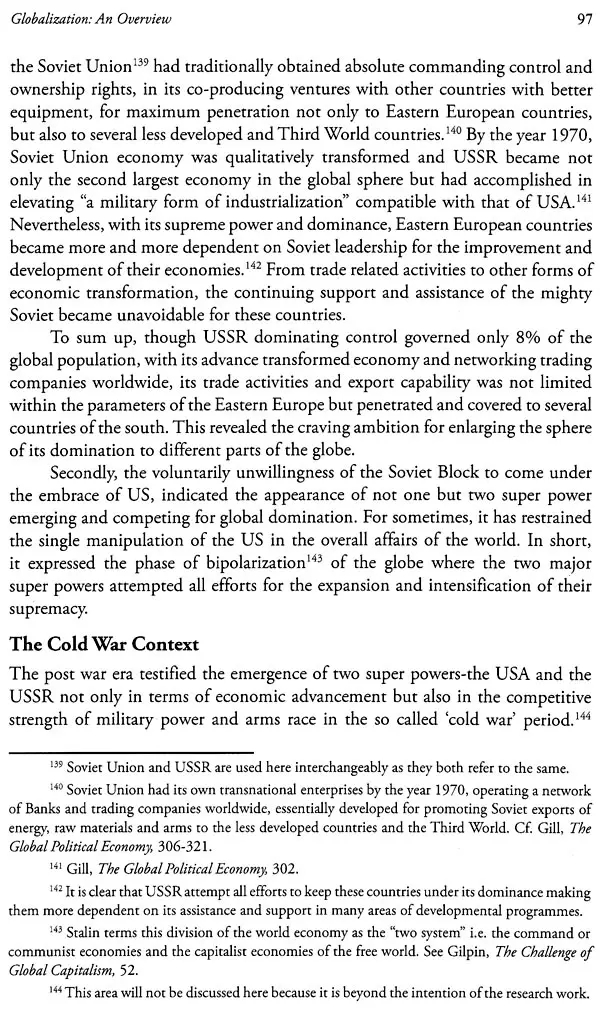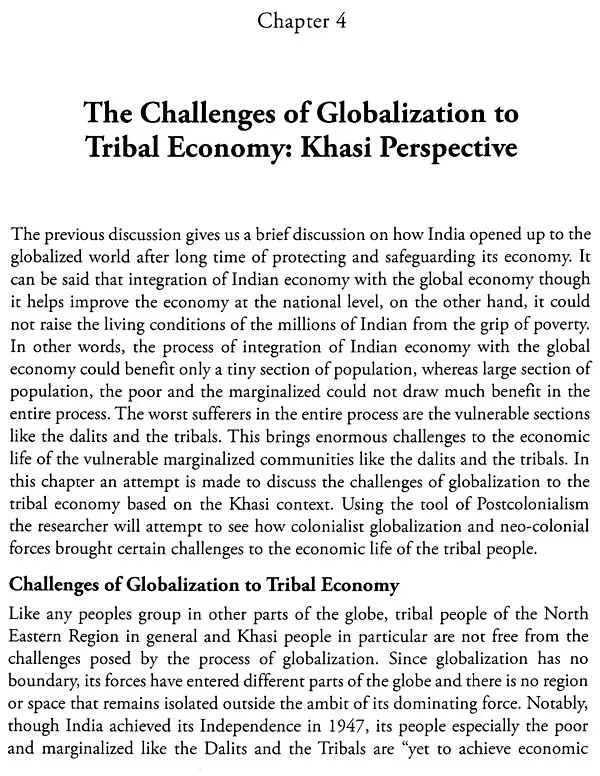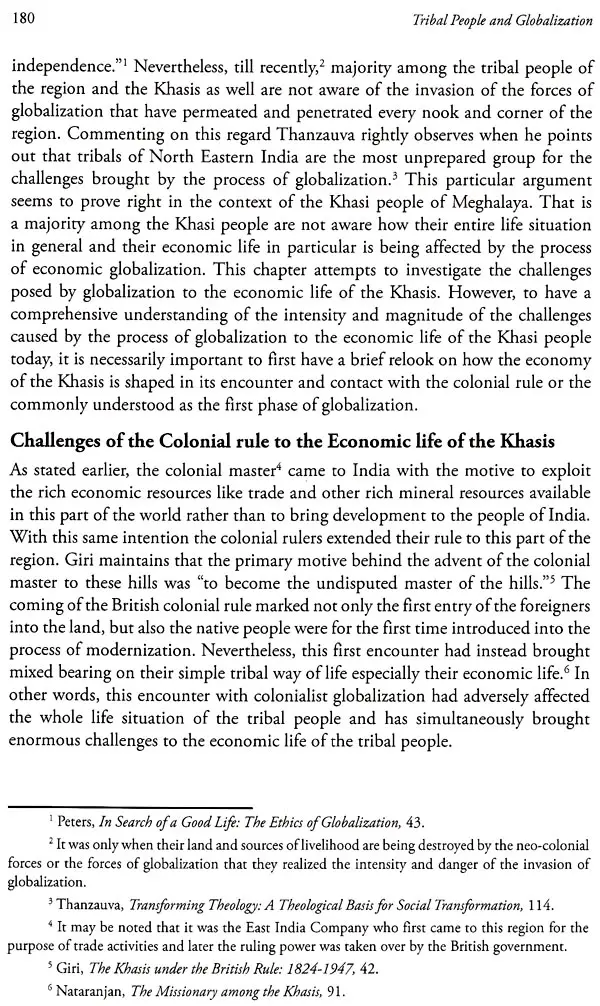
Tribal People and Globalization (A Theological Perspective)
Book Specification
| Item Code: | UBA328 |
| Author: | S. Hayong |
| Publisher: | Christian World Imprints, Delhi |
| Language: | English |
| Edition: | 2018 |
| ISBN: | 9789351482994 |
| Pages: | 392 |
| Cover: | HARDCOVER |
| Other Details | 9.50 X 6.50 inch |
| Weight | 810 gm |
Book Description
Globalization has come to be a principal characteristic feature of the new millennium and it has become an inescapable reality in today's society. No community and society can remain isolated from the forces of globalization. The general characteristic of globalization process is the liberalization of the movements of goods, services, investment and finance across national borders, and the expansion of global information flows and the acceleration of the speech of information exchanges. It involves a process by which economies of different countries are oriented to a global market and are controlled by multinational and global financial institutions. It is not merely an economic process; it is also a cultural process. With the help of media, it creates a mono-culture- a culture of rich and powerful. This book, Tribal People and Globalization: A Theological Perspective, makes a critical examination of globalization process from the perspective of tribal people locating in their experience.
While affirming the importance of development, the author argued the uncritical acceptance of market capitalism and pointed out that it will liberate the poor and tribal people from the yoke of misery and hunger. It operates with a basic ideology, i.c., maximum profit, maximum capital accumulation, and maximum exploitation of labour supported by global military hegemony. This ideology of ever-increasing growth and the thirst for maximization of profit and absolute domination of the earth's resources is a threat for future humanity. He further highlighted that in this development process, while rich nations have tremendous economic advantages, the developing countries are becoming poorer and more and more dependent. He argued that this will not only affect political rights but also widen gap between the rich and poor countries as the powerful countries to control and manipulate natural resources of other poorer countries, global trade, and world market for their own benefits and interests.
The process of globalization has adversely affected the tribal life, in general, and tribal economy, in particular. It has broken the delicate balance of the tribal economic resources, such as, land and natural resources. Such a situation calls for a theological formulation, which will help the tribal people, in general, and Khasis, in particular, to respond to these challenges of globalization, which influence their day-to-day life.
For centuries, prior to the British rule, Khasis, like most tribals groups in the North East India (NEI), lived in isolation from their neighbors' except for the main two reasons: (1) they had trade contact with their neighbors. (ii) Conquest of the vast tract of land both in the Surma valley or East Bengal in the south, and the plain of Assam in the North by the Khasi rulers in the Pre-British era. Hence, though the majority of the people in these hills were isolated from the outside world, many of them had substantial contacts with their neighbors. This study intends to examine how such contact contributed to the economic life of the tribal people of Khasi-Jaintia Hills.
**Contents and Sample Pages**
